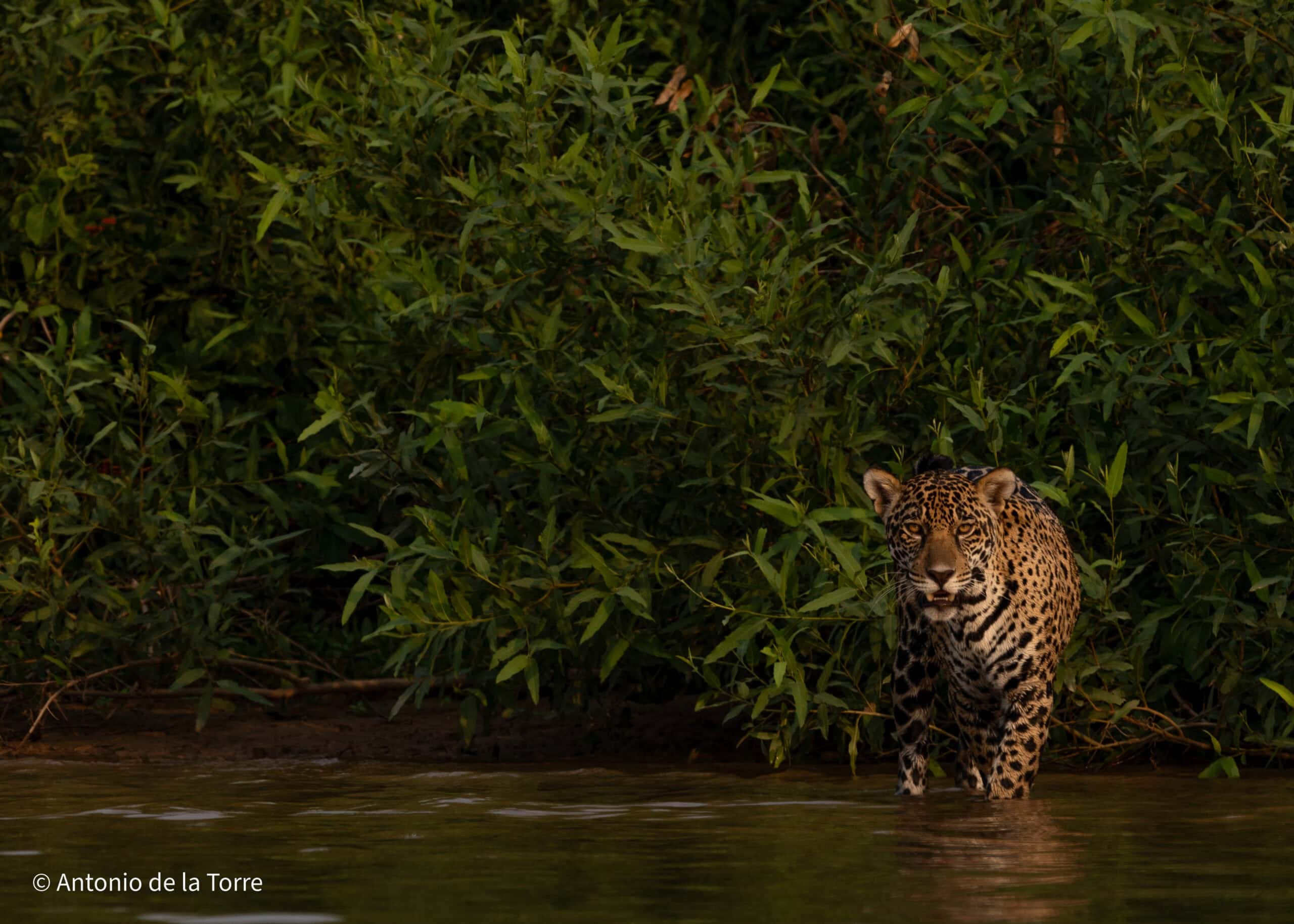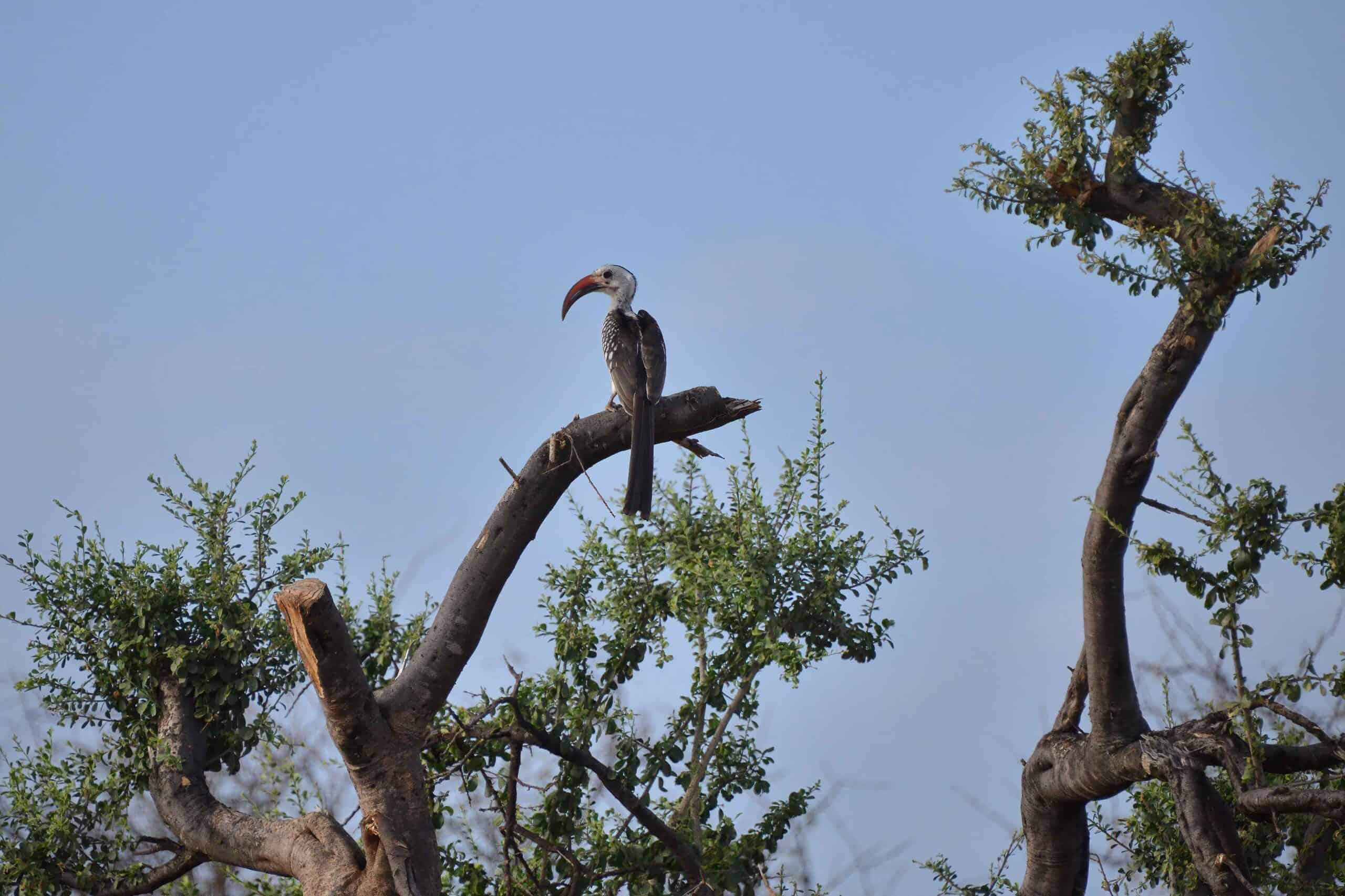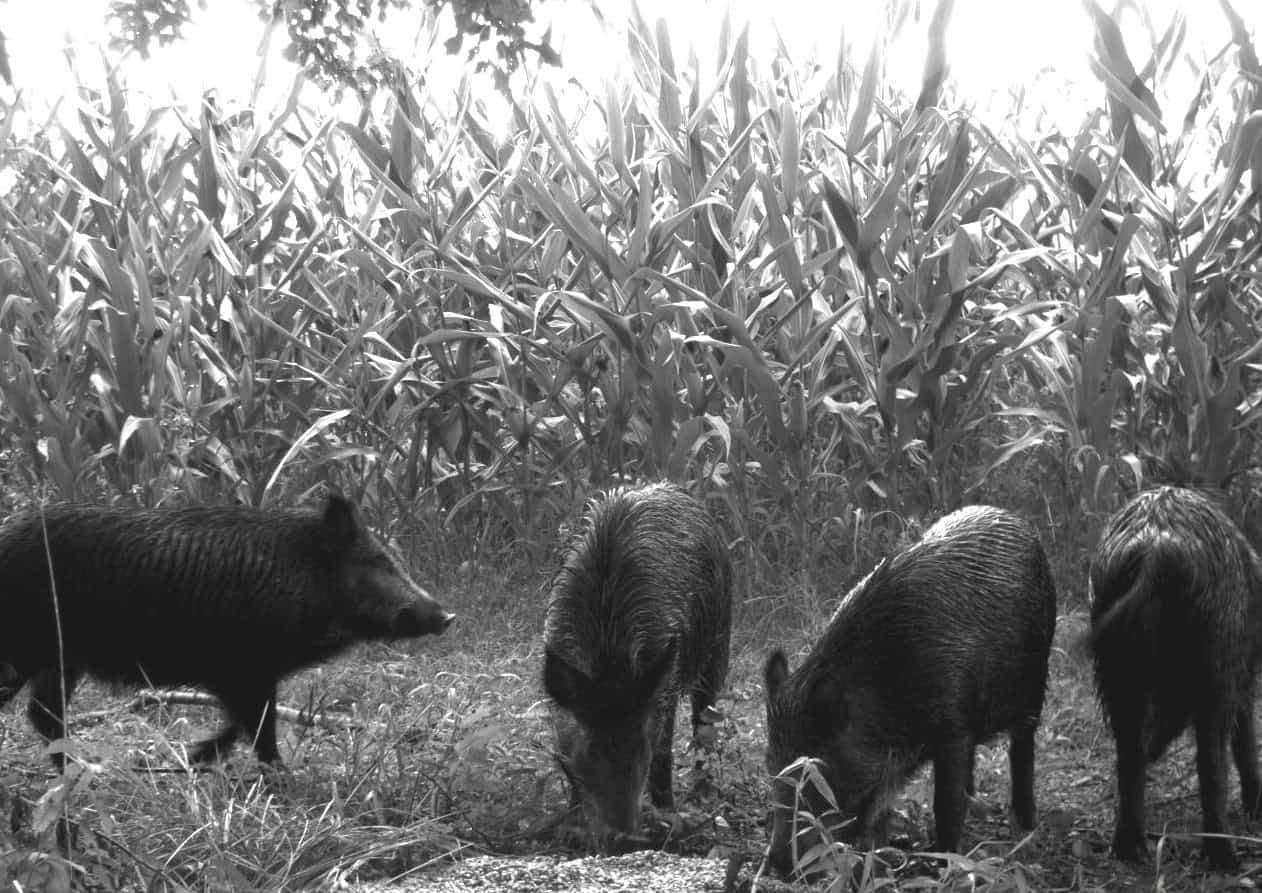Share this article
Wildlife Featured in this article
- Jaguar
- Cougar
Jaguar parts widely sold online in Mexico
Traffickers sold skins, teeth and skulls on platforms like Facebook, Etsy and eBay
Jaguar claws, tooth talisman necklaces, throw rugs and full skulls are just some of the illegal jaguar parts from Mexico that people are advertising and selling on platforms like Facebook and Etsy.
“The sales of jaguars and other wild felines on online platforms were more common than we thought,” said Antonio de la Torre, a postdoctoral researcher at the Autonomous Metropolitan University, located just west of Mexico City.
The International Union for Conservation of Nature lists jaguars (Panthera onca) as near threatened. The Convention on International Trade in Endangered Species of Wild Fauna and Flora (CITES) has prohibited the trade of jaguar parts since 1975, but a 2022 CITES study found that poaching and the illegal trade are a “growing threat” to the large cats.
De la Torre, who also works for Bioconciencia, a biological and cultural civic association, became interested in the topic of the online sale of jaguar parts after seeing a study that Wildlife Conservation Society (WCS) researchers conducted, tracking the online sale of jaguar parts across the world in various languages and platforms. In that study, the team found people were selling more parts from Mexico than from other countries.
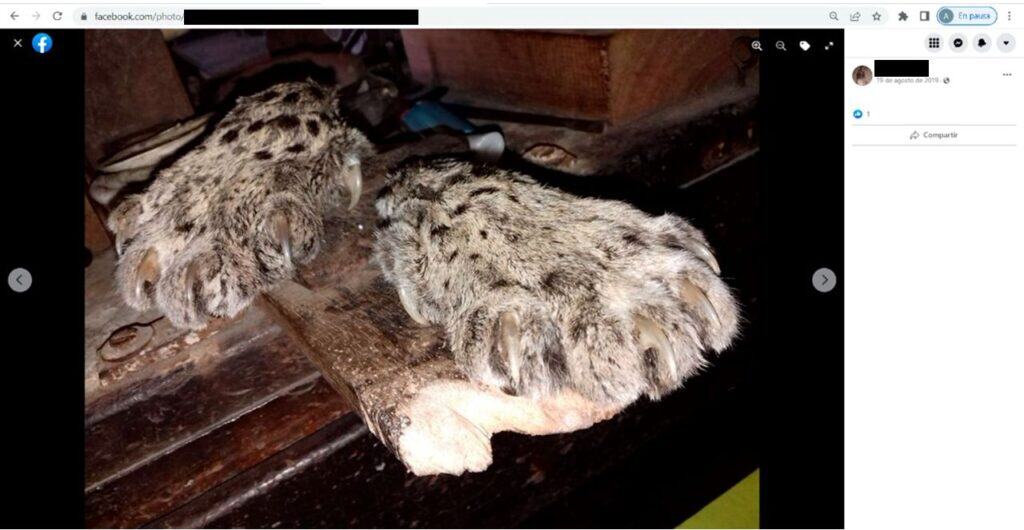
De la Torre was a little skeptical at first and began to do his own online search. The more he looked, the more examples he found of jaguar and other felid parts being sold in Mexico.
As a result, he and his colleagues conducted a study, published recently in Animal Conservation, delving more deeply into the Mexican market for these parts. They used the same standardized search protocol as the WCS study. For example, they used search terms like “jaguar claw” in both Spanish and English, using the word combinations in searches on various platforms like eBay, Etsy, Facebook, Google and Yahoo!
Open jaguar market
The team recorded all of the posts they found that used these terms, including photos and videos. They tried to infer the location of the users posting using the videos, photos and the publicly available profiles. They also read the comments on these posts between sellers and potential buyers to help determine where the buyers were located.
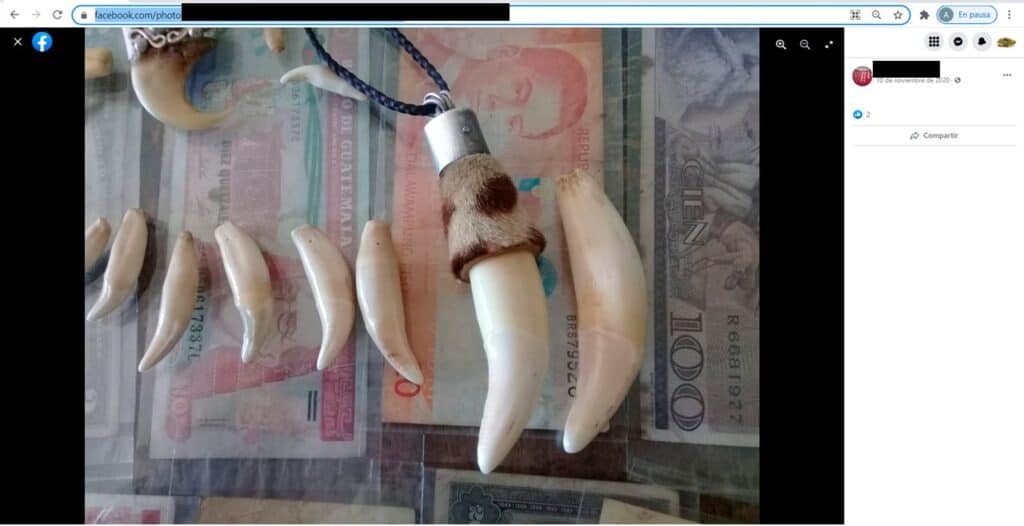
Their search, which examined posts in the 10 years preceding the end of May 2022, revealed 713 posts involving wild felid parts from Mexico. These posts—and responding comments—were made by 157 users from 60 locations, everything from small towns to Mexico City. About half of these posts explicitly mentioned the parts were for sale.
While jaguars were featured often, sellers in Mexico were also offering parts from other large felids, such as pumas (Puma concolor). But the team found posts featuring parts from species not native to Mexico, like African lions (Panthera leo) and tigers (Panther tigris), as well. De la Torre said that these parts likely come from breeding facilities located in Mexico, both legal and illegal.
Most of the posts selling jaguar parts were on Facebook, where de la Torre said it’s easier for users to offer these kinds of materials.
“Analysis of the buyers revealed that most were in Mexico, but there was also plenty of international interest,” de la Torre said. “When we talk about the illegal trade of parts, people mostly think the demand is in Asia, but we found that people are interested in Europe and the U.S.”
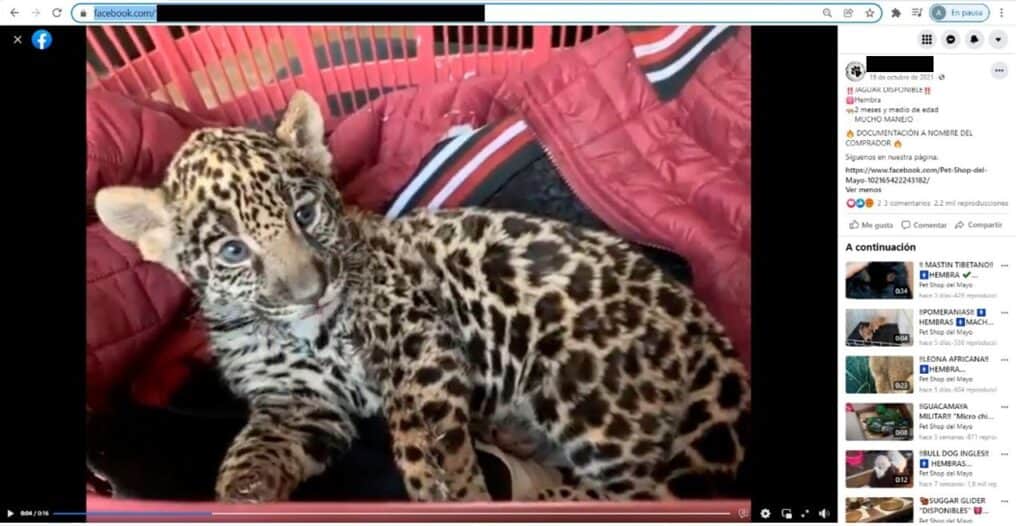
What jaguar parts are sold?
The team also analyzed what people were doing with the parts they were purchasing. They found a diverse range of uses, from decorative ornamentation to jewelry and clothing. Most of the posters were selling jaguar claws, which is apparently the most desired part, de la Torre said. Other popular items included skins, necklaces made of jaguar teeth or claws, or jaguar tooth pendants. Users were also selling full jaguar skulls.
De la Torre said that researchers need to better understand the sources of all felid parts, whether they come from poached jaguars or animals in breeding centers.
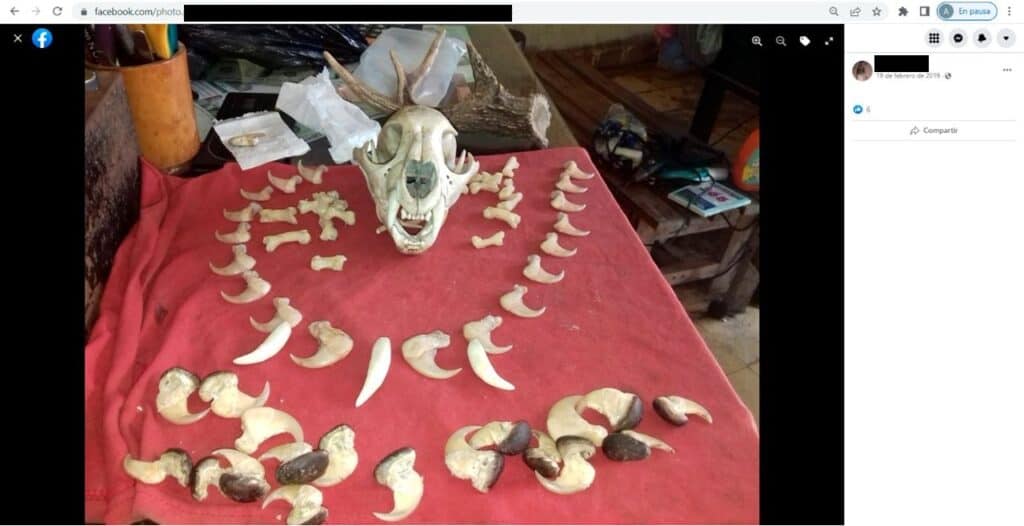
But it would also be beneficial, he said, for Facebook and other online platforms to censor these types of posts trafficking in illegal wildlife parts. The nature of the social platform makes it easy for traffickers to find buyers all around the world, he said.
Conversely, de la Torre said that authorities could monitor social media and other online posts, identifying potential trafficking and poaching networks.
Authorities could also do a better job of using social media to inform users that the sale of jaguar and other felid parts is illegal, he said.
Header Image: The sale of jaguar parts was more common in Mexico than any other country, according to previous research. Credit: Antonio de la Torre



